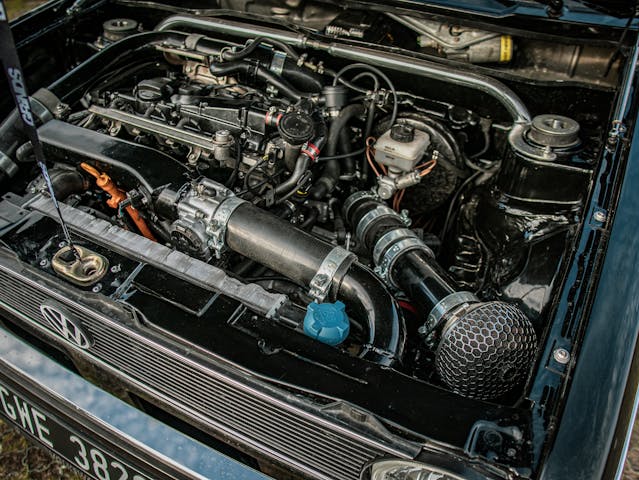Discover what do alternators do in a car… learn how they power everything, keep your battery alive, and keep your car running smoothly.
Your alternator keeps your car alive while the engine runs. It charges the battery, powers your electronics, and makes sure the voltage stays stable so nothing dies on you mid-drive. Understanding these essential components is similar to following an automotive maintenance guide that helps you keep your vehicle in top condition.
I’ll be honest… the first time my car died in the middle of traffic, I panicked. My brain ran through every possible culprit except the alternator. The battery, fuel, some invisible gremlin twisting wires under the hood… you name it.
And yet, it turned out the alternator was the real problem.
If you’re reading this, you probably feel that same mix of curiosity and mild panic. You want to understand what the heck that little metallic thing under your hood actually does and why it matters.
So let’s figure it out together… like we’re standing over the engine, trying to make sense of it all for the first time.
Once you know what alternators do in a car, suddenly everything about your car’s electrical system clicks into place. You’ll see why that little spinning piece is more important than you think.
Article Breakdown
What an Alternator Actually Does
At its core, the alternator has one job: keep the electricity flowing while the engine runs.
Think of your battery like a spark to start the fire. The alternator is the one keeping that fire alive. Without it, your car is basically a big metal flashlight with a dying battery.
Here’s how I like to think about it:
- The battery starts the car.
- The alternator keeps the car alive.
- Together, they’re a tag team. One kicks things off, the other keeps everything running.
The surprising part? Once the engine is on, the battery isn’t doing most of the work. That’s all the alternator.
How an Alternator Generates Power
It sounds complicated, but here’s the simple version:
When your engine spins, a belt turns the alternator pulley. Inside, magnets and copper windings spin and create electricity.
Imagine it like a tiny gym inside your engine:
- The pulley is the treadmill.
- The rotor is the athlete.
- The electricity is the sweat.
This “sweat” flows to your battery and electrical system, keeping everything running smoothly.
The Alternator’s Three Main Jobs
Every alternator does three things, and if even one fails, your car starts acting weird.
1. Charges the Battery
This is the part everyone knows about. But here’s the nuance: your battery isn’t some endless energy source. It’s more like a power bank.
The alternator keeps topping it up so your car keeps running. If the alternator dies, your battery lasts maybe 10, 15, or 30 minutes before the car taps out.
2. Powers the Electrical System
Every time you use:
- Headlights
- AC
- Radio
- Heated seats
- Infotainment screen
…your alternator is the one providing the juice.
If it fails, you’ll notice:
- Dimming headlights
- Radio cutting out
- Dashboard flickering
…like your car is breathing shallowly.
3. Regulates Voltage
The alternator doesn’t just produce electricity, it keeps it stable. Without this regulation, you’d get chaos:
- Burned-out bulbs
- Fried sensors
- Overcharged battery
It’s basically a traffic controller for electricity.
Why the Alternator Matters More Than the Battery
Here’s a twist: once your engine is running, the alternator matters more than the battery.
You could actually run some older cars without a battery while the engine is on… but the alternator is doing all the heavy lifting.
Think of the battery as the spark, and the alternator as the lifeline.
Common Symptoms of a Bad Alternator
Most people only notice the alternator when it starts failing. Here’s what usually happens:
1. Battery Light Comes On
Ironically, the battery light often signals an alternator problem. It’s your car waving a little red flag saying: “Something isn’t charging!”
2. Flickering or Dimming Lights
Especially at night. Headlights might brighten when you rev the engine and dim when you slow down. Your car is literally trying to tell you something.
3. Electrical Accessories Act Weird
Radio cuts out, windows move slower, dashboard flickers… everything seems slightly off. That’s your alternator struggling to keep up.
4. Whining Noise or Burning Smell
Sometimes the belt slips, or the alternator overheats. You might hear a high-pitched whine or smell something odd. That’s the alternator saying: “Help me.”
How Long Alternators Last
Most alternators last 80,000 to 150,000 miles depending on driving style, weather, electrical load, and quality.
But here’s the reality: sometimes a brand-new alternator dies early, and a 12-year-old one keeps running. Machines have personalities too.
Alternator vs. Generator
Both create electricity, but they work differently.
- Generators produce DC power directly.
- Alternators produce AC and convert it to DC.
Alternators are now standard because they’re lighter, more efficient, and reliable. Generators? They’re the flip phones of car power.
Where the Alternator Sits
Pop the hood and look around. The alternator is usually:
- Near the front of the engine
- Driven by the serpentine belt
- Metallic, round, industrial-looking
Kind of like a tiny spaceship glued to your engine.
What Happens If You Drive With a Bad Alternator
You can drive… until you can’t.
Your car will rely on the battery until it dies. Then:
- Engine shuts off
- Power steering fails
- Brakes feel heavier
- Everything dies
Dramatic? Yes. Avoid this situation if possible.
How to Test an Alternator
You don’t need fancy tools for a quick check:
- Start the car. If it struggles, maybe the battery is weak.
- Turn on headlights, AC, radio.
- Watch for dimming or flickering.
- Listen for whining or grinding.
- If the battery light stays on, it’s probably the alternator.
Mechanics can confirm in minutes with a multimeter.
Types of Alternators
- Traditional Alternators – Standard, built-in regulator.
- High-Output Alternators – For heavy electronics or sound systems.
- Smart Alternators – Adjust output for start/stop cars to save fuel.
- EV Alternators/Generators – Modern electric cars use converters instead, but the principle is similar.
Comparison Table: Alternator, Battery, Starter
| Component | What It Does | When It Works | If It Fails |
|---|---|---|---|
| Alternator | Generates electricity & charges battery | Engine running | Car dies mid-drive |
| Battery | Starts engine & stores energy | Before start | Car won’t start |
| Starter | Cranks engine | At ignition | Clicking, no start |
Frequently Asked Questions
What causes alternators to fail?
Heat, worn bearings, bad diodes, old belts, and heavy electrical load are the most common reasons.
How much does it cost to replace an alternator?
Depending on your car, usually between $150 and $700 including labor.
Can a car run without an alternator?
Yes, but only until the battery drains completely. That could be minutes or maybe an hour.
How do I know if it’s the battery or alternator?
If the car dies while driving, it’s usually the alternator. If it won’t start but lights work, it’s usually the battery.
Is the alternator the same as the battery charger?
Kind of. It charges the battery, but also powers all your electronics and stabilizes voltage.
Key Takings
- Alternators keep your car’s electrical system alive while the engine runs.
- They charge the battery, power electronics, and regulate voltage.
- Without one, your car will only run until the battery drains.
- Most alternators last 80,000 to 150,000 miles.
- Symptoms of failure: dim lights, flickering dashboards, weird smells, stalling.
- Alternators are more important than the battery once the engine is running.
- Early testing and replacement prevents sudden breakdowns.
Additional Resources
- How car electrical systems work, How a Car Works: Explains how your car distributes electricity to keep everything running smoothly.
- How Belt Pulleys Work, YourMechanic Advice: Details how belts drive essential components like alternators and why maintenance matters.



